The godless world saw the birth of man. On the desolate battlefield the astonished winner stood up and a naive triumphant grin was printed on his face: the war was perhaps won, the hated enemies defeated, man could finally get out of his lair and march on earth and other creatures. What a joy for the peoples, but what a tragedy for the world! Today, at the "Wall of Time"And al crossroads of history, having broken the order that we have taken for granted too lightly, we are preparing to build new paradigms for the world to come.
di Lorenzo Toro
cover: Adolf Kosárek, "Mountain Landscape in the Storm"
On the gray nativity scene of our world stand chimneys, megacities, power lines. On the ancient fertility praised by poets of all ages has come down a gloomy mourning veil, a symptom of disease. A funereal stench arises from the bleak scenario of a world bled by life, announcing the need to pose new problems and seek new solutions. Contemporary man finds his cross where he loses himself, and in front of him he sees the path of his salvation and that of his mission coincide and merge in a single way: illusion is replaced by tragedy, tragedy by awareness and awareness, in better days, the redemption.
The anthropocene is intimately linked to desolation, probably much more than any previous geological era with its characteristic landscape, and this phenomenon appears to us in all its clarity when we push ourselves to consider the speed of transformations that took place after the industrial revolution or the disturbing homogeneity of the landscapes that cover the entire earth's surface. We, the privileged victims of this planetary executioner, in the moment in which we acquire an adequate awareness of our condition, we re-establish ourselves in the timeless role of the medieval wanderer, of the Germanic Waldgänger Jüngerian, of the "ranger" Tolkienian: poised between survival and crusade, the privilege granted to us by history is to find ourselves in a phase of our development where the fog, for those who prove able to look upwards, clears up and the evil that afflicts us it appears clearly in front of us, taking the features of a hungry and insatiable opponent.
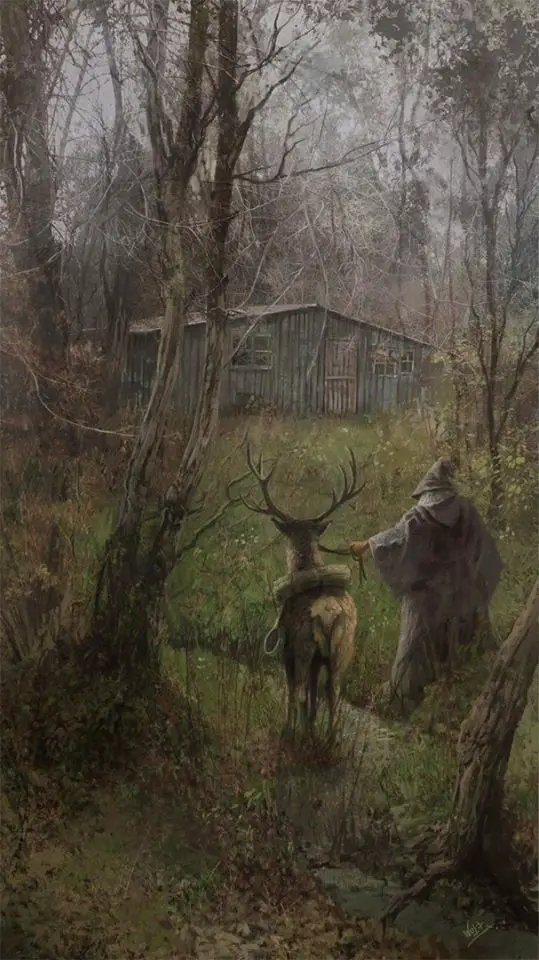
The priceless value of times of crisis lies, in fact, in giving consciences the possibility of an absolute choice, in allowing us to see more and more clearly glimpses of an authentic world. which, as such, appears to our mortal eyes as a battlefield, where the decision of the individual as well as of the community has an unequivocal character and decisive effects. Ours is, therefore, an era of Choice. On the edge of the abyss the illusory conviction of being able to escape from one's role, to the sound of the war horn, also disappears. Where there is crisis, disillusionment and fear, at first there is probably even more courage and awareness; however, very few, if any, will not feel the danger in the pestilential air.
However, the identification of the answer to the definitive question must be done with an adequate method, the research of which can only pass through a careful sounding of the history of thought and, therefore, of the civilization that is born with it. What panorama appears before us? Our science has taken the trouble, in recent centuries, to formulate a refined conceptual apparatus based on rationality, causality and utilitarianism. In a world where the need to circulate goods and knowledge was growing, the scientific revolution appeared on cities like the luminous ray of a providential sun. The machine of progress, feeding on space and matter, set in motion, accelerating the development of human singularity until a bright future of innovation and oblivion: from Galileo to artificial intelligences the step was probably short, and the gap between the two stages of development of an exclusively quantitative nature.
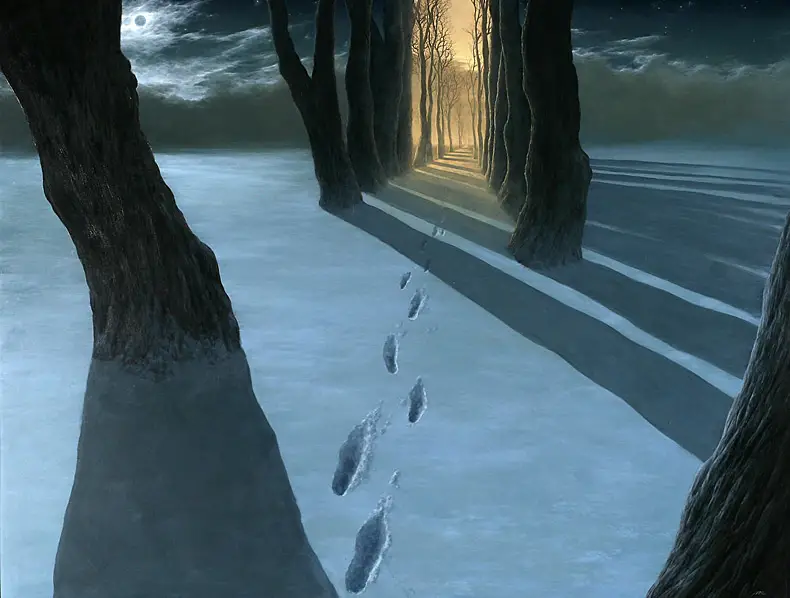
Now, in the moment of crisis, civilizations give different narratives and representations of themselves and of the world, always dependent on the nature of the dominant ideology: as this phenomenon is reflected, the atrophy of human culture in a presumptuous tangle of calculating circuits, on the widespread perception of the crisis? And, more specifically, what consequences are poured into the conception that man has of the ecosystem and its imbalances, of ecology and ecologisms (which are none other than the "crisis sciences")?
It is more than evident that the theoretical apparatus with which our culture has found itself to face the arrival on the threshold of the abyss has proved largely inadequate: the approach of increasingly dark horizons mankind reveals its total inability to place questioning the foundations of one's own civilization, firmly rooted in a humid ground of anthropocentrism and suprematism. The collapse thus reaches the gates of a city in chaos, unable to make decisions and choices, which reacts to the threat of a siege with opulence and waste of resources. Therefore, in order not to give up in search of a blind spot in the line-up that allows us to escape, we must forge new weapons and react with new vigor to the offense. The perspective that opens up requires us to consider new ways and try new approaches: any attempt to reform the world that follows partial and optimistic paths completely loses its meaning., and who reads the future of the species and of the whole world in a scenario not unlike that of the civilized and submissive planet.
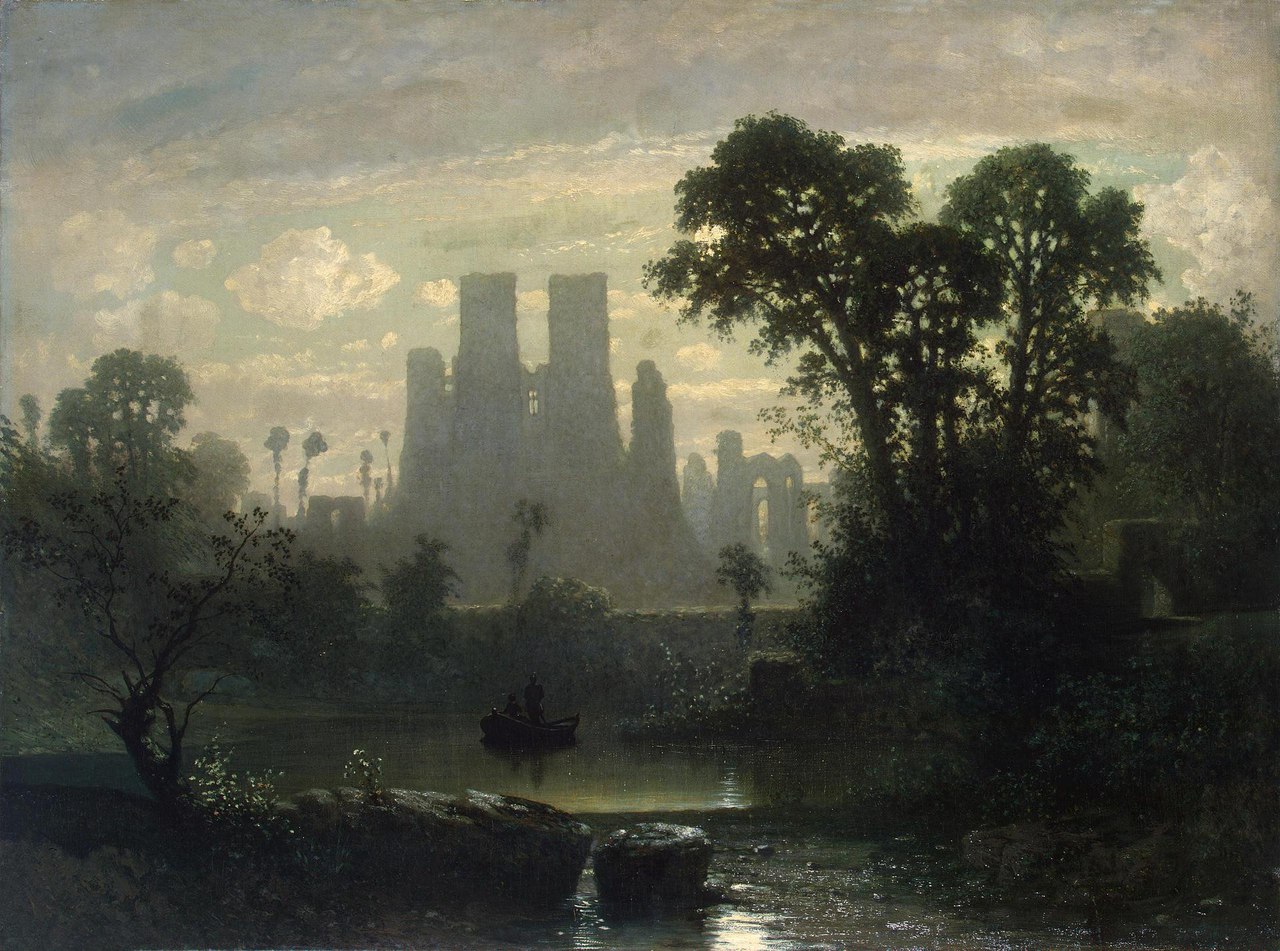
Unfortunately, any ecology (that is, in the age we live in, every science of the remedy and the possibility of ways out of the crisis) which starts from "human", anthropocentric and "conservationist" assumptions, finds its destiny in drama of the shipwreck: recent events, which certainly do not bode well, highlight how every form of care given to the world and the ecosystem that is based on the balance of interests, which is posed in terms of "convenience" and "compromise "And that he therefore inserts in the equation of his relationship with withered and dying Nature a further variable (that of the preservation of human civilization as it is today) can only collide painfully with reality, seeing the thin veil of appearance that prevented it from being recognized as the intelligent construction of a certain category of people in the act of protecting their interests.
What, then, is manifested as essential in a period like this, intimately marked by collapses, decadence and tragedy? It is easy to understand how, on board a ship that is in a suicidal direction, there is only an immediate change of course; consciences find themselves not in front of a crossroads, but in the presence of a hairpin bend, in a dark tunnel: in question is not the direction to take, but rather our ability to deviate before impacting the tunnel wall.
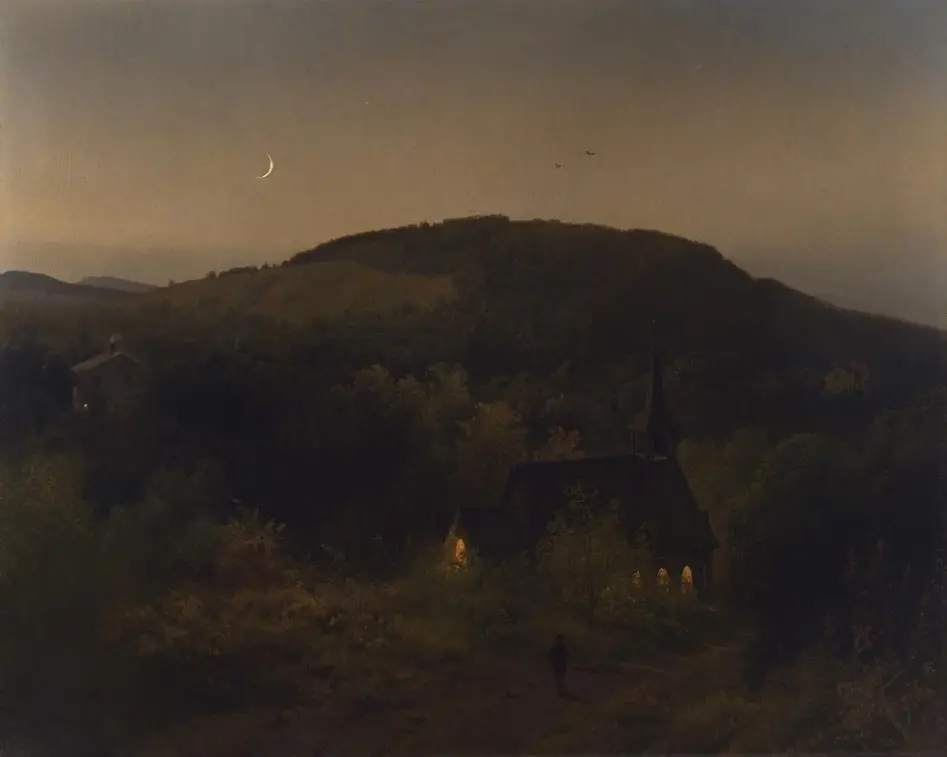
If the structure of human civilization is to change, if the paradigm underlying our way of being and thinking is to be transfigured, those theoretical, practical, cultural and psychological presuppositions that have led man to perdition and the consequent destruction of the world. It is neither more nor less than a detour: old roads are abandoned and ancient paths hidden by neglect, at the edge of the pavement, are rediscovered again, between the noisy river and the icy forest.
For our and other people's survival, the possibility of saving the civilization of the useful, the commodity, the means, of the man master of everything on which he is able to extend his gaze is lacking; instead, behind those familiar horizons, a mysterious silver star rises, the promise of the end and rebirth: the new world is promised to us as the object of a prophecy, as a divine gift, to seal a covenant. We should therefore perhaps replace the beautiful considerations, compromises and interests with a new form of relationship with nature threatened by collapse, our house on fire: this new relationship could take the form of a pact, and our personal attitude in all this changing form and substance to regenerate and reconfigure itself as a form of devotion, of very deep and very solid abandonment to an idea, to something infinitely and incomprehensibly greater than us.
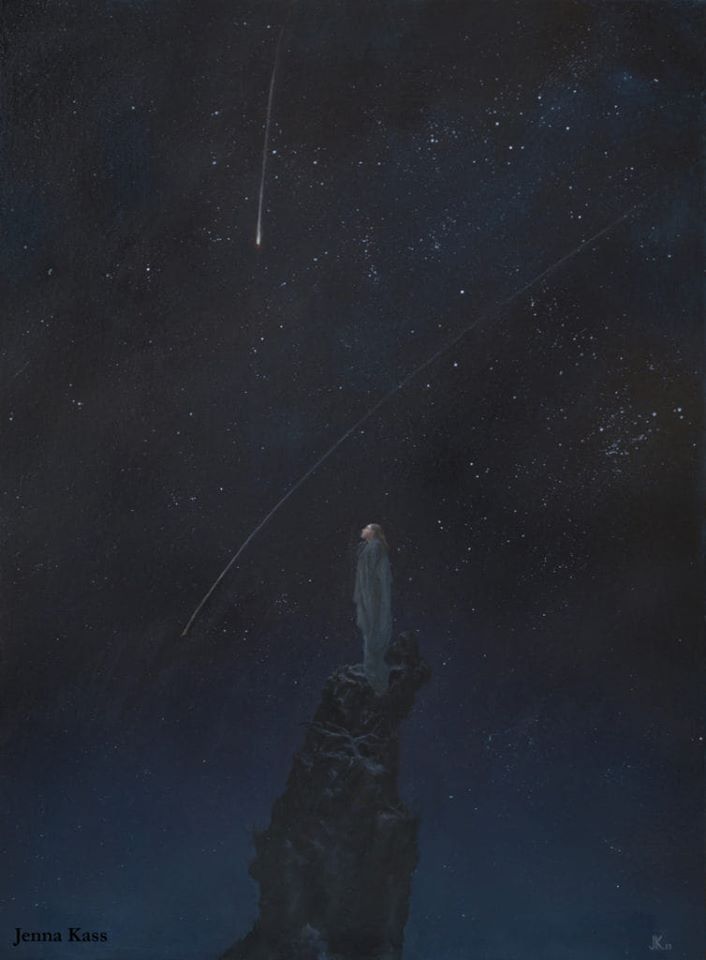
Devotion it is probably the key term to express the previously proposed change of course, as well as the new ethical / cultural / spiritual configuration to be sought in order to resist the anomalous wave of that epochal decline of which the ecological catastrophe is the most evident expression. It is to a divinity that we owe unconditional protection and sacred gratitude, and Nature is divinity in the most concrete sense as a set of every possibility, of every potentiality of the existing.. In front of it, calculations, considerations, interests, all that tangle of seductive lies that envelop the clear truth that our eyes, still children, are unable to recognize, fade to the point of disappearing: our planet is in danger, our earth and all the lands of the world are threatened.
The inadequacy of the current dominant thought, which convinces us that the safeguarding of our world and the order it represents are choices to be weighed, to mediate, to be considered in a broader equation that brings to the table other contradictory factors ( development, progress, well-being), boldly manifests itself to those who make themselves capable of understanding, and does so in all the different facets of the prism of human society. The path that opens up (or, better, the path that reveals itself) is, therefore, that of unconditional adhesion, of univocity, of mission; beyond any political argument, any worldly consideration (and well above them, at an incalculable distance from any system of thought that has among its tools the balance and the weight, the tools of the merchant), there is blind dedication, the pre-rational awareness that good exists and that our unquestionable duty is to defend it.
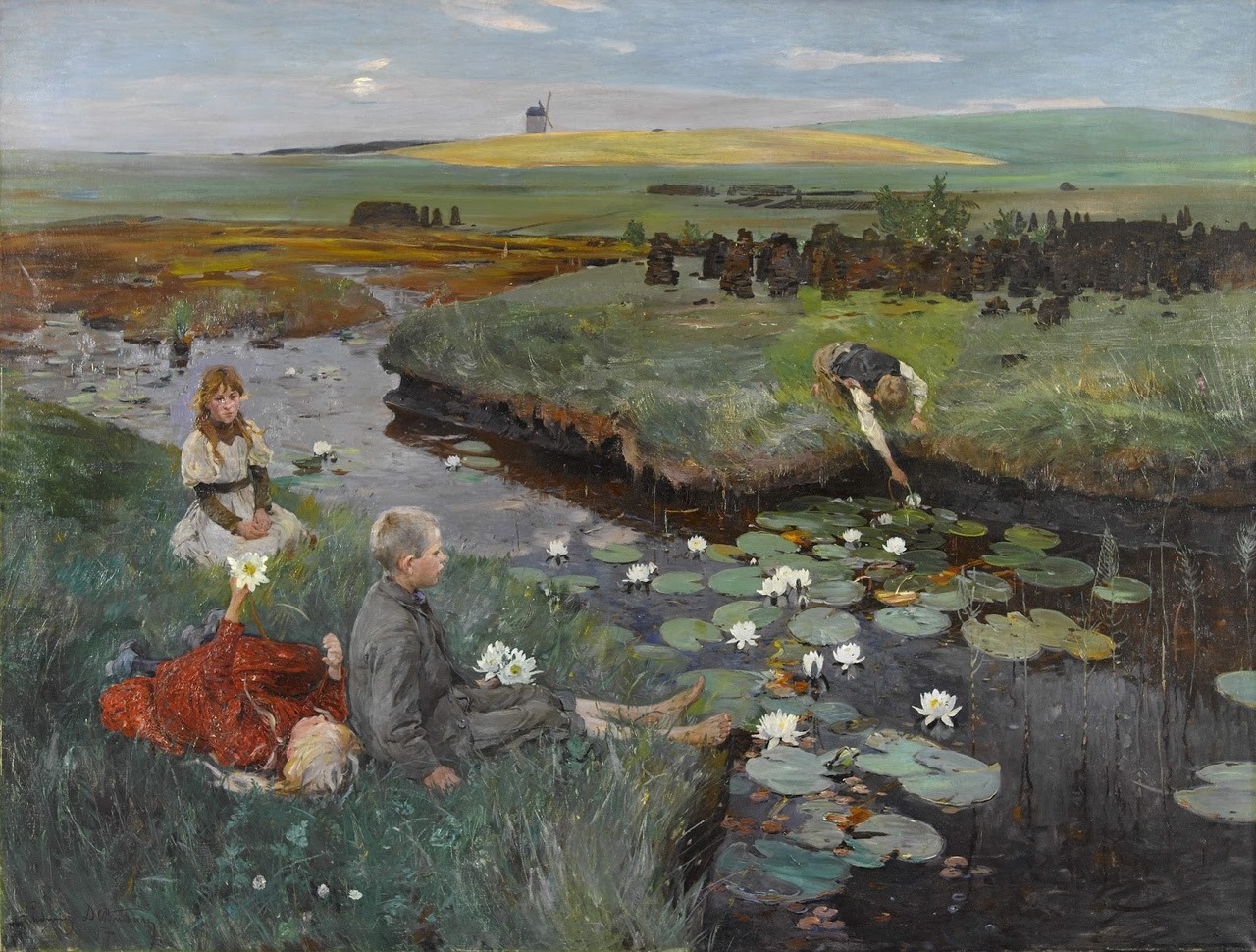
Every devastation draws strength, in fact, from procrastination, from discord, from the need for mediations and external justifications, weakening the opposing front and breaking through the walls of nature unharmed thanks to the strength of political and, obviously, economic power: who, on the other hand, can discuss about such a decisive choice, as radical as it is unjustifiable? Who will be able to oppose a "yes" without "why", a "yes" that draws its strength from ancient archetypes and forces, the "natural", extra-historical and eternal ones? Who would have the courage to speak out on the love of a man for his parents or for his children, or of any individual for his land? It is in a different dimension (that of the "temple", rather than that of the "market" in which we find ourselves now) that the conditions for a new ecology must be sought, for adevoted and devotional ecology.
Mission and dedication, as well as care and love, are not entirely foreign elements to our historical experience. On the plateau of our memory, the timeless flowers of our past sprout breaking the frost, the images of the cult of those who preceded us: in the moment of despair, hope is in the possibility of understanding the radically different relationship of our ancestors with the surrounding world, the innate ability to understand each other as part of an immutable order, the obsequious respect for his balance.
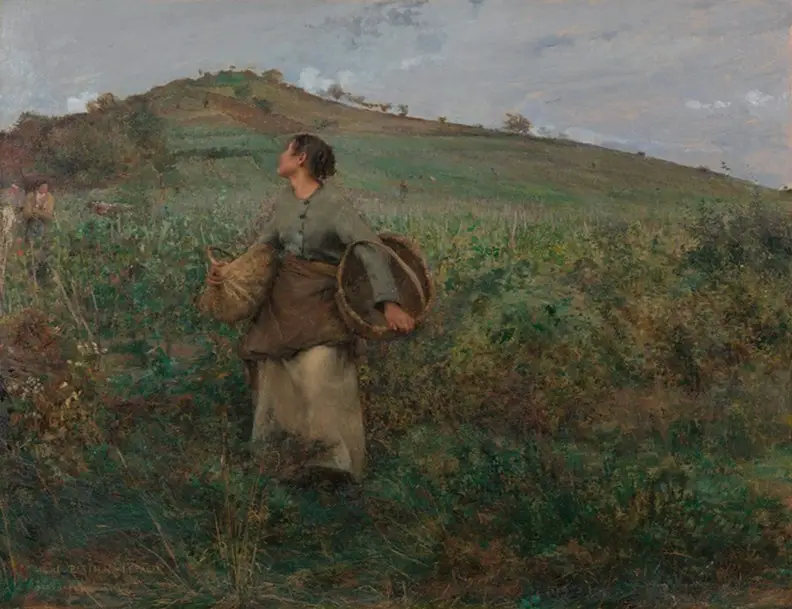
Don't get us wrong, this is certainly not the place for legitimizing the established order or the existing power relations (quite the opposite, rather)! We should try to leave aside the external symbols of the cult of our ancestors (the cross, the saints, the madonnas, the lords, so to speak), in order to focus all our attention on the naked nature of the event, on the act itself. of adoration, of respect, onimage of the shining eyes of the illiterate peasant shocked and tormented by stupor mundi.
What to sacrifice our soul for? Is there something that is worth it for, and that at the same time requires such martyrdom? The answer to such a question should besiege the minds of all men going through dark times like these. For the salvation of ourselves and of the temples on which the world rests, some idols must collapse, allowing the sun that will rise tomorrow to see a restored world in front of it: no one should be afraid of it, despite the promises of catastrophe, because at the sunset of the idols whole civilizations die, but mountains and trees are reborn every day.

What the future needs is a paradigm shift: the internal turmoils of history in progress, generated by the unsustainability of modern civilization, manifest themselves in all levels of our existence, from the crisis of personal identity to politics. We are threatened even in the secrecy of our intimate space, and our feelings, our emotions and our troubled and corrupted hopes are affected: the drama is, in all likelihood, to be traced back to the moment in which the ancient joy of life atrophies, decomposing into many small joys in life.
It is good, however, to remember how hope, in its irreducible simplicity, surrounds us: to an attentive and humble eye, stripped of the arrogance characteristic of the man of progress, the promises of joy whispered between very narrow gorges and the gurgling of streams, between immense peaks of bare rock and fresh spring gems will not escape.
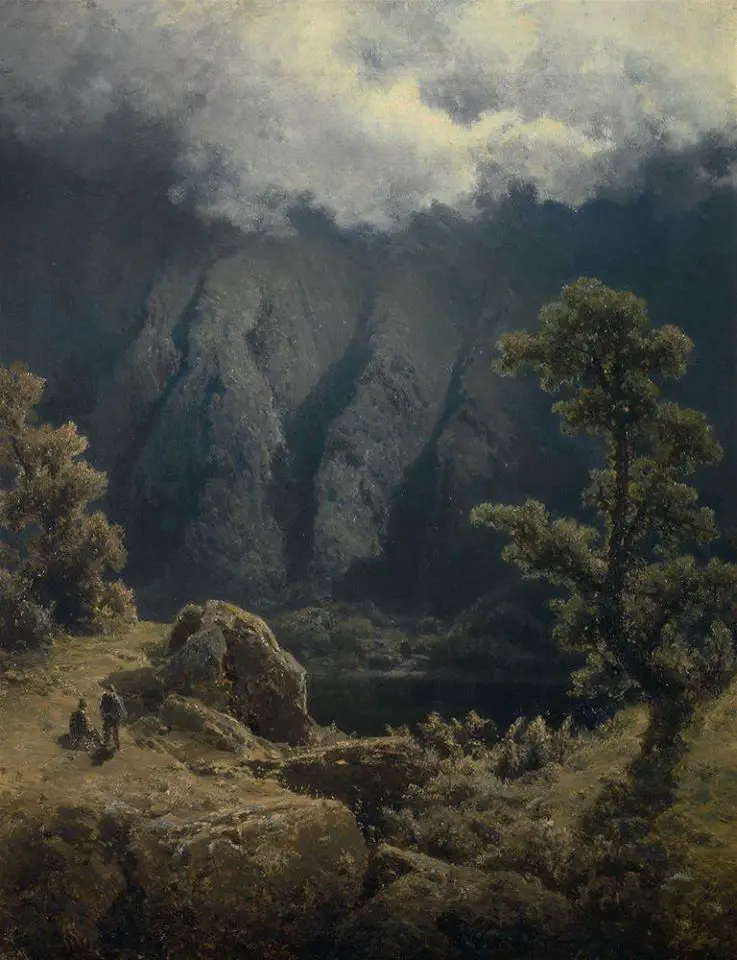

3 comments on “Devotion: the sunset of the idols and the Waldgänger trail"